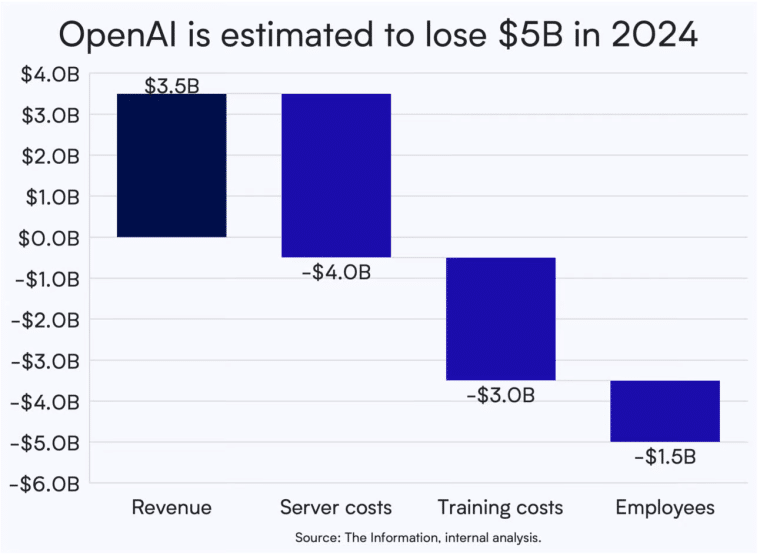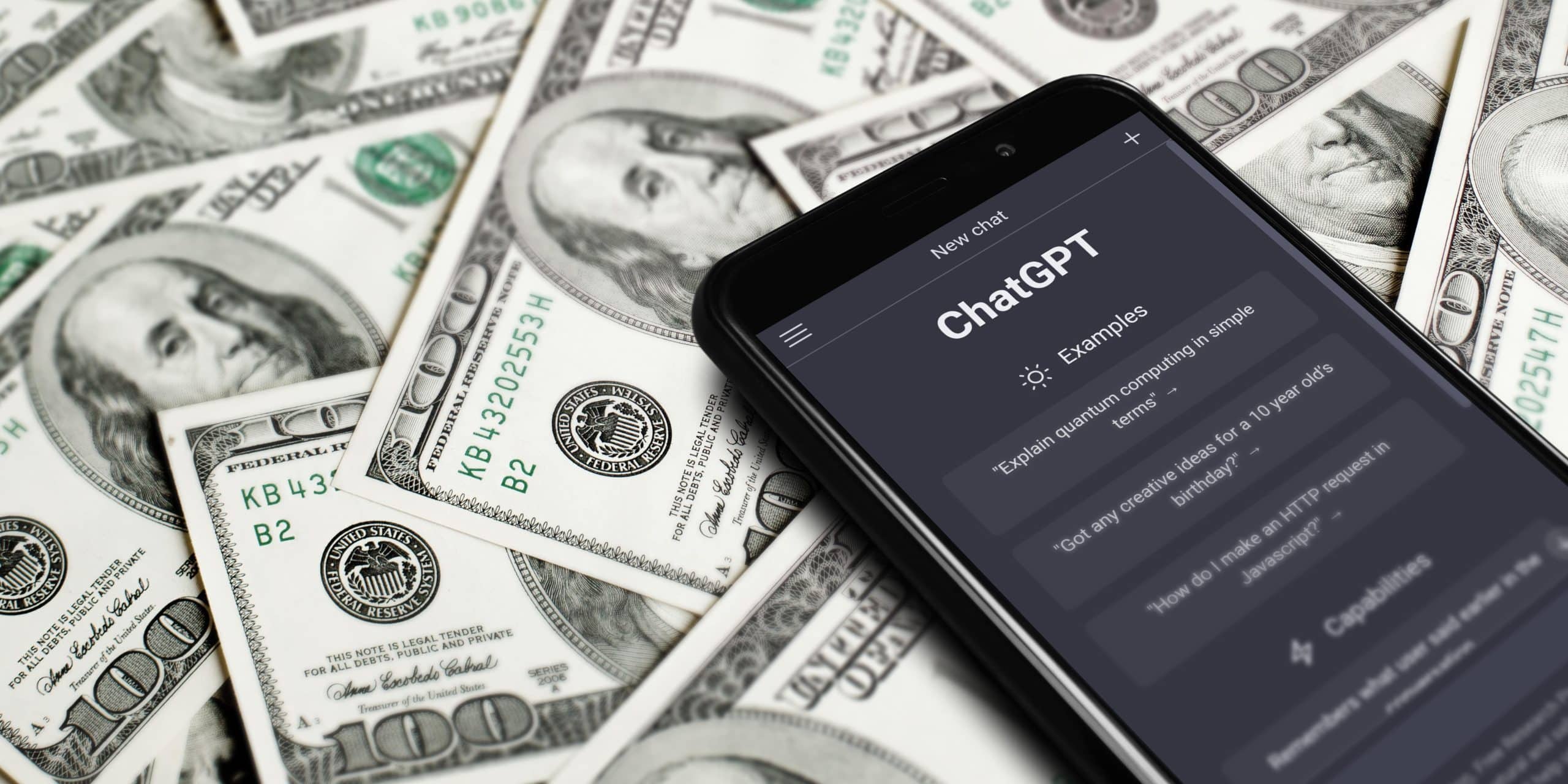OpenAI, the creator of ChatGPT, has acquired the domain chat.com from Dharmesh Shah, the founder and CTO of HubSpot. While neither OpenAI nor Shah has disclosed the price, it almost certainly exceeded $15.5 million. The strange transaction may help shine a light on OpenAI’s staggering spending.
For context, Shah purchased chat.com for $15.5 million in early 2023 and sold it not too long after. In his recent LinkedIn post, Shah said, “I was not at liberty to share who the acquirer was (I was going to leave that to them, when they were ready).”
Meanwhile, in a tweet, OpenAI’s CEO Sam Altman revealed that his company purchased the domain and routed chat.com directly to ChatGPT. While we still don’t know the exact price and mode of payment for the deal, we can still make some informed guesses.
— Sam Altman (@sama) November 6, 2024
OpenAI Spent Millions Buying a Domain Name
In his post, Shah shared a ChatGPT prompt with the following key points.
- Shah “almost never” sells a domain at a loss
- He has known Altman for long before OpenAI and “doesn’t like profiting off of people he considers friends.”
- Shah did not need cash from the deal and always wanted to buy a stake in OpenAI.
Based on these, we can be reasonably sure that he likely sold the chat.com domain for over $15.5 million but not exorbitantly higher. Also, it seems like it was either an all-stock or stock-and-cash deal.
Notably, there is tremendous investor demand for OpenAI which is evident in the company’s valuation, which has nearly doubled this year to a cool $157 million. At the same time, OpenAI spending millions of dollars (likely around $20 million) for a domain is bound to raise eyebrows.
OpenAI is Posting Massive Losses
OpenAI has been posting absolutely massive losses as it continues to improve ChatGPT and its other AI projects, such as its text-to-video generator Sora. It is expected to lose $5 billion in 2024 on revenues of $3.7 billion. Documents seen by the New York Times show that ChatGPT has around 10 million paying users who pay a monthly fee of $20. OpenAI plans to increase that fee by $2 by the end of the year and progressively raise it to $44 over the next five years.

Despite OpenAI’s mammoth losses, it has plenty of cash in its coffers. Last month, it raised $6.6 billion in a funding round led by Thrive Capital, which has put $1.25 billion into the company. Tiger Global, Microsoft, and Nvidia were among the companies that participated in the funding round as companies scrambled to grab a pie of the hot AI artificial intelligence startup. Microsoft has invested over $13 billion into OpenAI which continues to burn billions of dollars every year, among others on buying Nvidia’s AI chips.
OpenAI has massive cash needs and Altman believes that the company would need to raise $100 billion as it strives to achieve “artificial general intelligence” – which means an AI model with human-like intelligence that can learn and improve itself. If that number sounds outrageous, Altman was also reportedly in talks with global investors to raise $7 trillion to expand the chipmaking facility to meet the growing demand from AI. Check out Altman’s thoughts about AGI in the clip below from his recent podcast with Lex Fridman.
Where Does OpenAI Spend Money?
According to the Information, OpenAI is spending almost $4 billion to run ChatGPT and its annual training costs alone are around $3 billion. OpenAI also spends money on employee salaries and office rents but it’s worth noting that its cash losses don’t account for the generous share-based compensation.
Meanwhile, much of OpenAI’s money actually goes into Microsoft’s coffers as the company hosts its infrastructure. That said, Microsoft expects to realize a loss of $1.5 billion in the current quarter, predominantly due to its share of losses in OpenAI since the company reports its investment under the equity method.
Biggest Domain Purchases in History
Given its multi-billion-dollar annual cash burn, spending a few million on a domain name might not be a big deal for OpenAI. Notably, companies much smaller than OpenAI’s size have spent even bigger sums securing sought-after domains.
For instance, earlier this year, a startup named Friend coughed up $1.8 million to buy the domain friend.com after raising $2.5 million which valued the AI startup at $50 million.
While OpenAI spending millions on buying a domain might sound outrageous, there have been much larger transactions in the past.. According to SEO.co, the biggest domain purchase was in 2007 when business.com was sold for $345 million. Lasvegas.com came in at a distant second with $90 million followed by carinsurance.com for $47 million.
Is Domain Trading Profitable?
Most people with entrepreneurial spirits learning about OpenAI’s purchase are probably wondering whether domain trading could be a good way to make money on the side. The practice has been around for practically as long as the internet, but today’s market is very different from how it used to be. In the initial days of the internet, while the scene was still evolving rapidly, some people recognized the value of domain names and made a killing out of it.
As the internet’s reach has expanded, domain trading has also evolved with some sites dedicated to the activity.
One of the most recent examples of domain trading was witnessed in India where someone acquired the domain Jio Hotstar ahead of the merger of streaming assets of Indian conglomerate Jio and Disney+ Hotstar. However, that person sold the domain to two young siblings fearing a legal battle with one of India’s biggest companies.
There’s a trending discussion about the JioHotstar domain purchase, so I thought I’d share my own story
Reliance sent me a Legal Notice about the domains https://t.co/CLDanrXGit and https://t.co/rntRyO3xvK, which I booked back in 2012. Interestingly, Jio was officially… pic.twitter.com/WTrPzDbNDa
— Amit Bhawani 🇮🇳 (@amitbhawani) October 24, 2024
Domain trading is an attractive semi-passive income source on the surface. However, it involves intensive research into identifying domains that can be in demand in the future and it takes a ton of luck to hit it big. The idea is to look for strong keywords that ideally relate to emerging industries and trends. You have to keep ahead of the crowd and diligently follow recent developments around the globe for ideas – just as the person who bought the Jio Hotstar domain did by acquiring the domain when the companies were rumored to be in talks.
That said, trading in domain names probably won’t turn you a profit overnight as it can be extremely hard to find willing buyers. There are also costs associated with holding a domain including annual recurring payments to keep the domain name. The holder might also need to spend money on registering (or purchasing) trademarks. If someone else owns the trademark, there is a major risk of a legal challenge.
